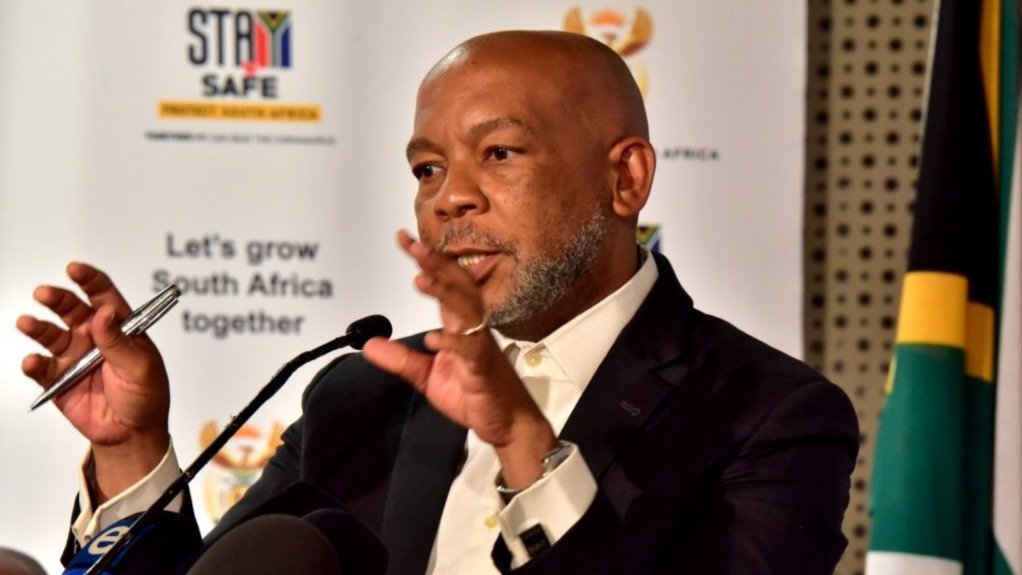The Minister in the Presidency responsible for Electricity, Dr Kgosientsho Ramokgopa, intends presenting Cabinet with a list of options before the end of April that he says will outline ways to accelerate efforts to tackle growth- and confidence sapping loadshedding.
If adopted these could result in changes to the timelines outlined in the Energy Action Plan (EAP), which has been widely consulted with stakeholders and which the Minister has been appointed to implement.
While he did not indicate specifically what his preferred option would be, Ramokgopa used an extensive briefing at the Union Buildings on Thursday to outline some of his findings as well as possible solutions following a two-week tour of 15 Eskom power stations.
One of the options detailed included what would be a highly controversial and probably legally fraught plan to extend the life of certain coal plants beyond their hard-stop retirement dates.
If endorsed by Cabinet, such an intervention could also place the $8.5-billion Just Energy Transition Partnership with France, Germany, the UK, the US and the European Union at risk. This, given that the partnership is premised on supporting South Africa in retiring its coal stations largely in line with the schedule outline in the Integrated Resource Plan, as well as the country’s Nationally Determined Contribution, which outlines South Africa’s decarbonisation commitments.
Ramokgopa made the case for sustaining the continued use of certain coal units on the basis that there was insufficient time available ahead of their decommissioning date to replace the capacity on a like-for-like generation profile. He also argued that age was no longer the key determinate of performance, highlighting that Tutuka’s 26% energy availability factor was below that being achieved at older plants.
“There are very difficult choices before us, and one of those choices is: Do we close [the coal plants] at the current rate … or do we delay and refurbish?”
Equally controversial would be a possible intervention, also mooted by the Minister, to secure yet more pollution exemptions for those stations currently being operated below their nameplate levels because they are unable to meet legislated minimum emissions standards. Here, too, the likelihood for legal contestation is high should Cabinet endorse such a move given the deteriorating air quality in the Highveld region.
An exemption has already been secured to enable the Kusile power station to introduce temporary stacks that by-pass the flue-gas desulphurisation plant, following a collapse of the Unit 1 flue in October last year, which rendered all of the three units that share a common exhaust stack inoperable.
The exemption is likely to enable Eskom to reintroduce some 2 100 MW of supply by the end of the year, while Ramokgopa argued that environmental exemptions at Kendal could add another 1 000 MW.
Ramokgopa is also keen for Eskom to secure yet more funding to both invest in its undercapitalised cost-plus coal mines, as well as to return certain coal units to service.
The Minister argued that any assessment to invest even more heavily in Eskom’s under-maintained and poorly performing assets should not be governed by the state of the utility’s balance sheet, despite it already being heavily reliant on ongoing fiscal transfers.
Instead, he argued that the economic and social costs of failing to invest should be the key determinant, with the South African Reserve Bank having estimated the daily cost of loadshedding to be between R204-million at Stage 4 and R899-million at Stage 6.
The Minister stressed that the options outlined were the result of his engagements with managers and workers at the coal stations and at Koeberg and that he also intended consulting with what he described as South Africa’s “renewable-energy complex” before finalising the options to be presented to Cabinet.
In the meanwhile, the EAP would continue to be implemented, with the Minister's options designed to provide an "enhancement of what is possible with regards to the timelines" of that plan.
EMAIL THIS ARTICLE SAVE THIS ARTICLE ARTICLE ENQUIRY
To subscribe email subscriptions@creamermedia.co.za or click here
To advertise email advertising@creamermedia.co.za or click here











